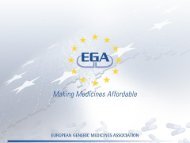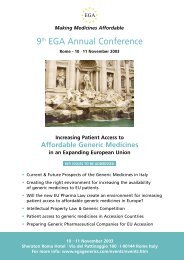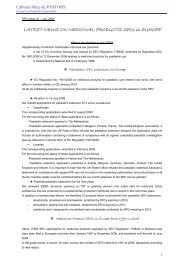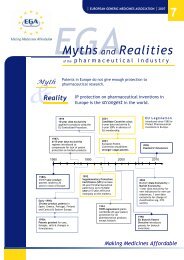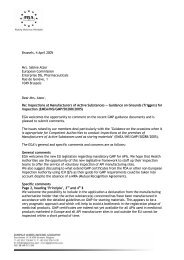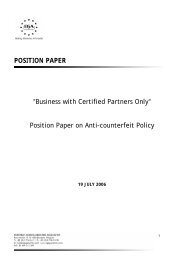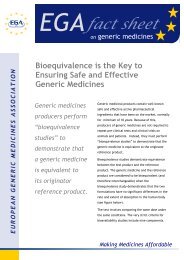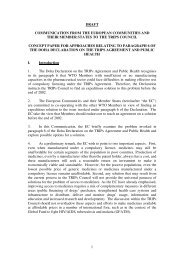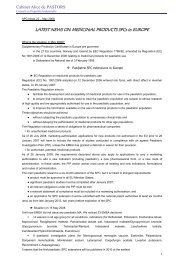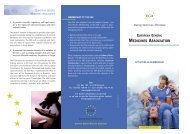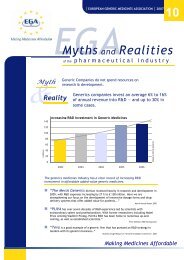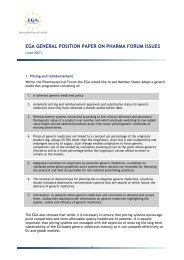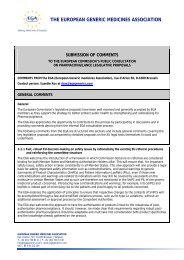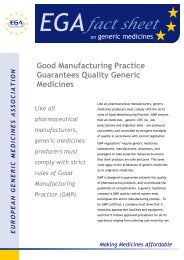EGA Position Paper - European Generic medicines Association
EGA Position Paper - European Generic medicines Association
EGA Position Paper - European Generic medicines Association
You also want an ePaper? Increase the reach of your titles
YUMPU automatically turns print PDFs into web optimized ePapers that Google loves.
met’. Failure to make this change will render it virtually impossible for ‘competing’companies to operate in the CL/tender market.2.2.5 Article 7. Promotion of voluntary agreements. Requirement to obtainauthorization from right holder.Article 7 imposes the obligation on the applicant to provide evidence that efforts havebeen made to obtain authorisation from the right holder on reasonable terms andconditions, and that such efforts have not been successful within a reasonable period oftime.However, Article 31 (b) of the TRIPS Agreement allows this requirement to be waived inthe following situations: national emergency, extreme urgency, public non-commercial useor where the CL is issued to remedy an anticompetitive practice. Article 7 is therefore toorestrictive as it merely orders that these situations be taken into account whendetermining ‘a reasonable period of time’ for obtaining the voluntary license. It appearsthat the applicant would have to try to obtain a voluntary license even in cases where theWTO member has declared a situation of national emergency. Such an approach will createuncertainty and delay. In conclusion, the prior negotiation requirement imposed by article7 should be waived where the importing country indicates one of the circumstances listedin article 31 (b) of TRIPs.Moreover, Article 7 needs clarification. As currently worded, it creates legal uncertainty inthe context of an export procedure that is meant to be as simple and least burdensome aspossible. It provides no clear definition of how long a new producer must attempt tonegotiate a voluntary license. A fixed period of 30 days must be set for these negotiations,as otherwise they could drag on endlessly, delaying — or even stalling permanently — thedelivery of <strong>medicines</strong>.2.2.6 Article 8.3 Rights conferredThis article limits the scope of the license “strictly to acts of manufacturing and selling forexport”. In line with the WTO Decision — which is much broader in this aspect — theimportation of APIs (active pharmaceutical ingredients) to produce the pharmaceuticalproducts requested should specifically be permitted.2.2.7 Article 8.9. Royalties concerning compulsory licensingArticle 8.9 also needs to be clarified as the term “adequate remuneration” is too vague.Certainty must exist on the royalties to be paid when a Compulsory License is granted.Otherwise, the generic producer would be placed in the impossible position of beingexpected to enter into export agreements before knowing the royalty rate, the duration ofthe agreement, the quantity permitted by the CL, or even whether the CL was obtainableat all.A more suitable approach would be to calculate the royalty on the basis of the UN’s HumanDevelopment Index (HDI) rank. Under this approach, the maximum royalty payable would5



